HISTORICAL BACKGROUND OF THE UK Anglo-Saxon Invasion Abrossimova

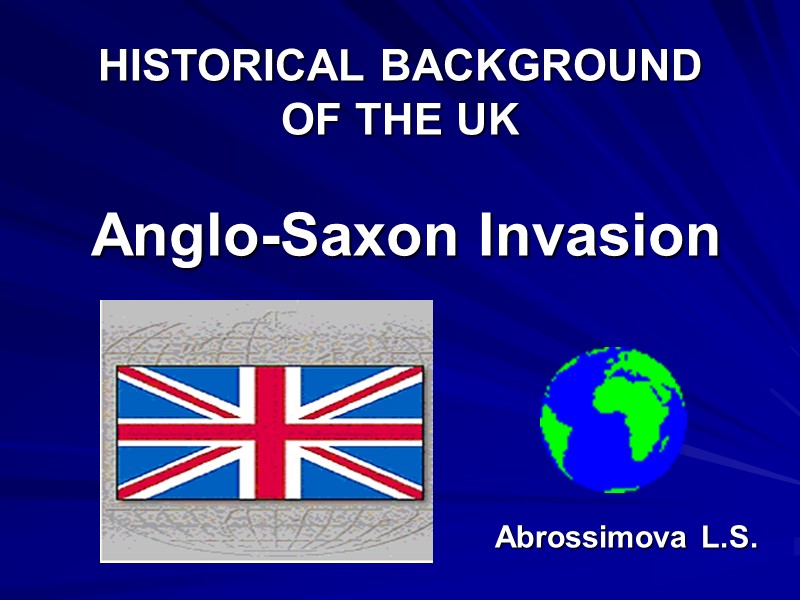
HISTORICAL BACKGROUND OF THE UK Anglo-Saxon Invasion Abrossimova L.S.
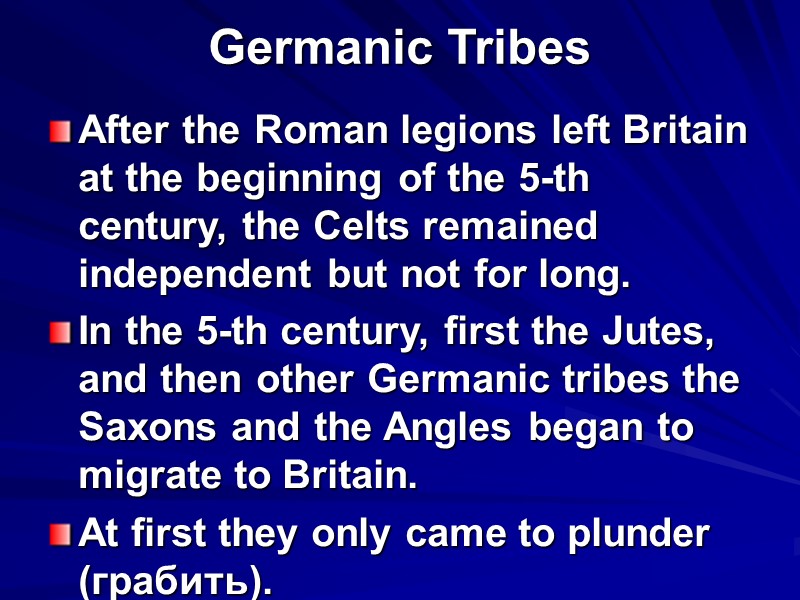
Germanic Tribes After the Roman legions left Britain at the beginning of the 5-th century, the Celts remained independent but not for long. In the 5-th century, first the Jutes, and then other Germanic tribes the Saxons and the Angles began to migrate to Britain. At first they only came to plunder (грабить).
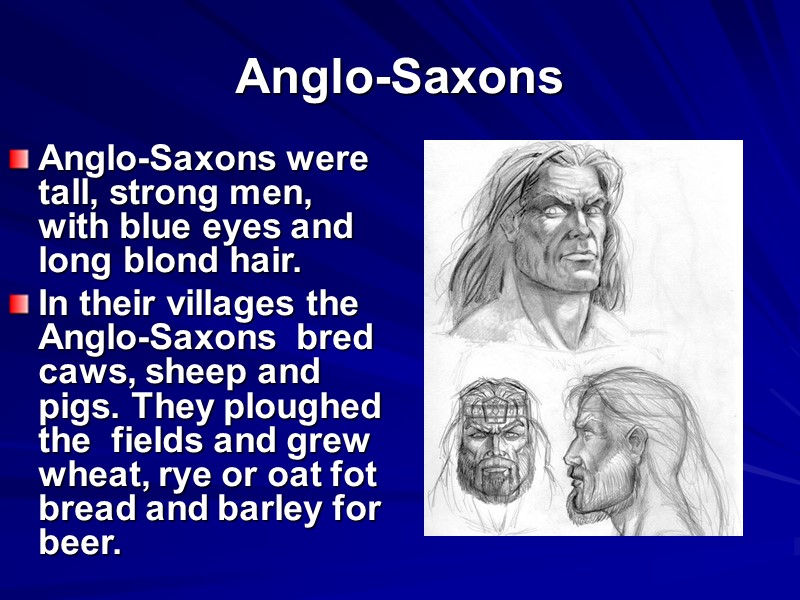
Anglo-Saxons Anglo-Saxons were tall, strong men, with blue eyes and long blond hair. In their villages the Anglo-Saxons bred caws, sheep and pigs. They ploughed the fields and grew wheat, rye or oat fot bread and barley for beer.
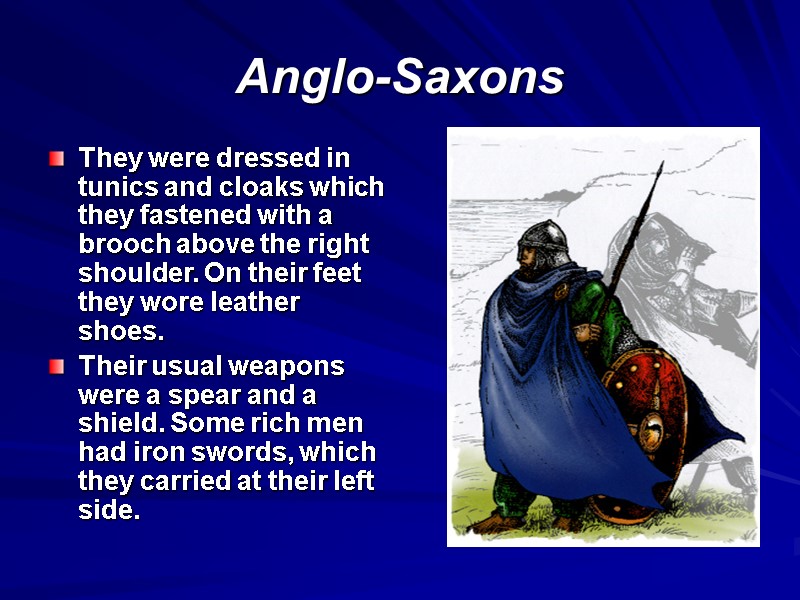
Anglo-Saxons They were dressed in tunics and cloaks which they fastened with a brooch above the right shoulder. On their feet they wore leather shoes. Their usual weapons were a spear and a shield. Some rich men had iron swords, which they carried at their left side.
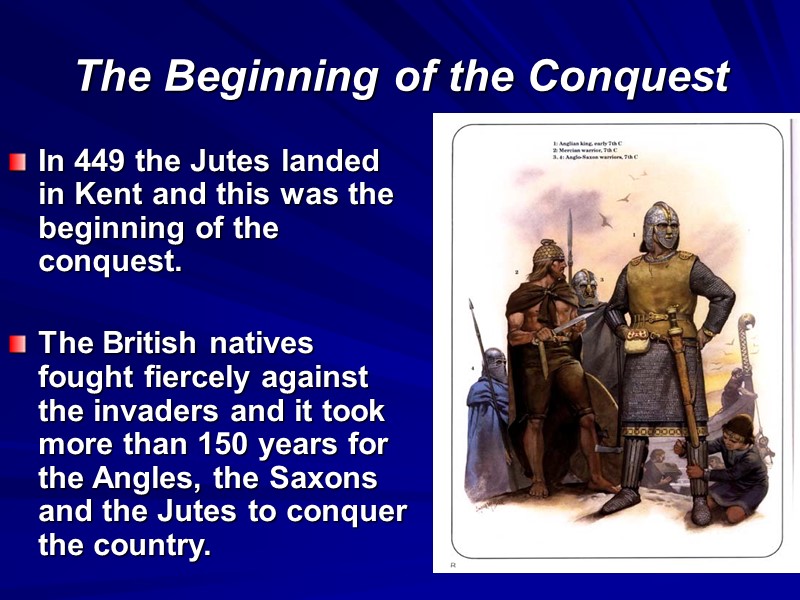
The Beginning of the Conquest In 449 the Jutes landed in Kent and this was the beginning of the conquest. The British natives fought fiercely against the invaders and it took more than 150 years for the Angles, the Saxons and the Jutes to conquer the country.
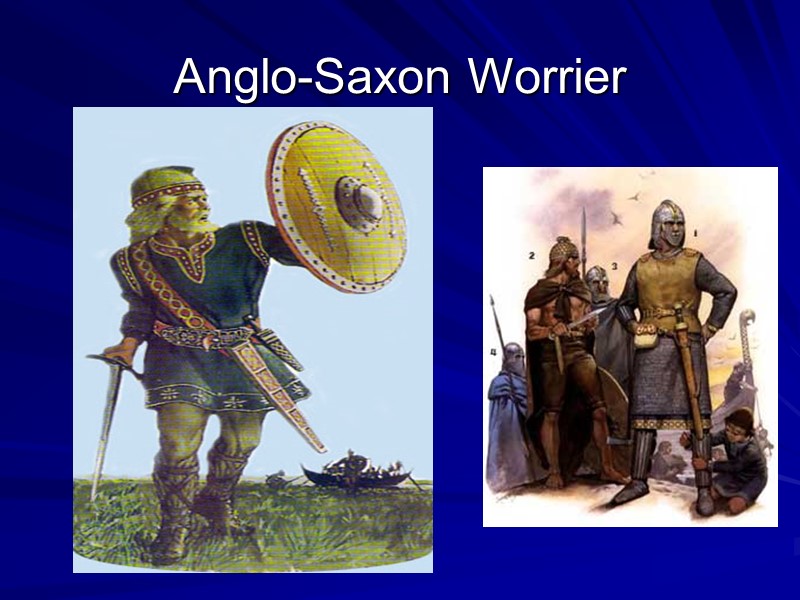
Anglo-Saxon Worrier
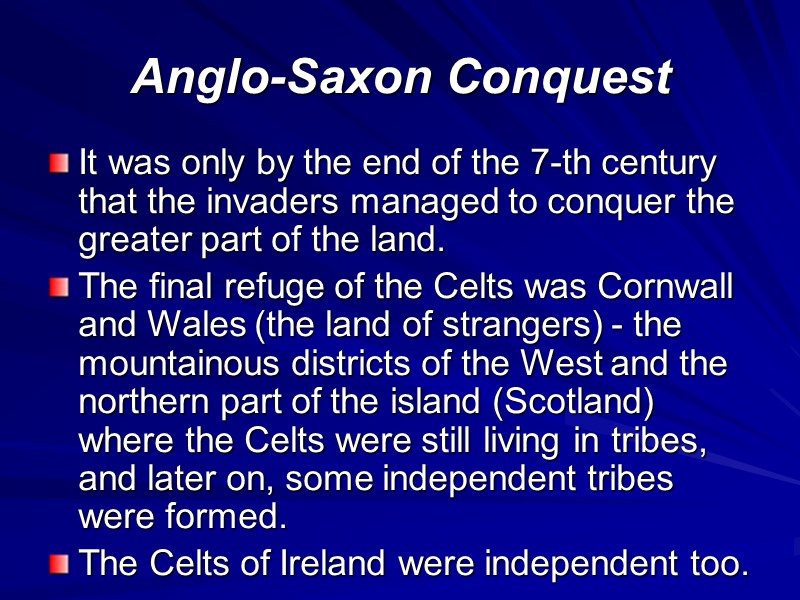
Anglo-Saxon Conquest It was only by the end of the 7-th century that the invaders managed to conquer the greater part of the land. The final refuge of the Celts was Cornwall and Wales (the land of strangers) - the mountainous districts of the West and the northern part of the island (Scotland) where the Celts were still living in tribes, and later on, some independent tribes were formed. The Celts of Ireland were independent too.
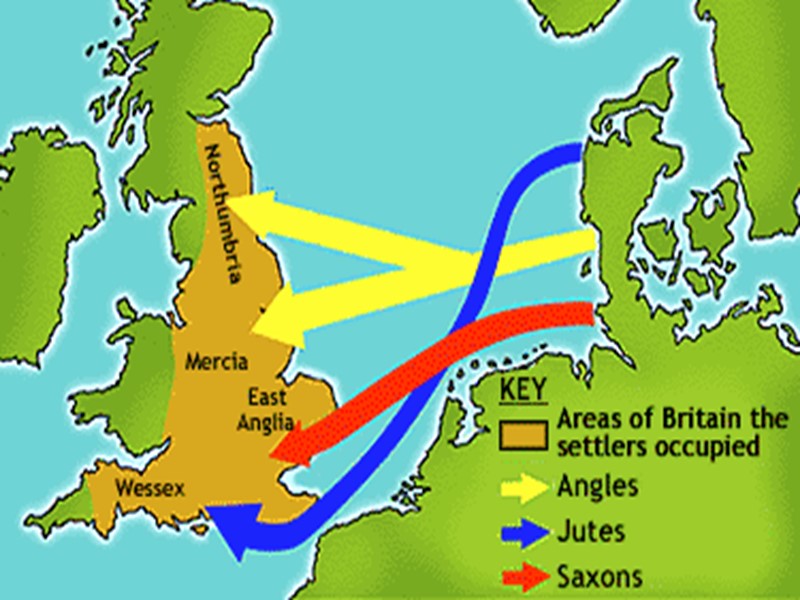
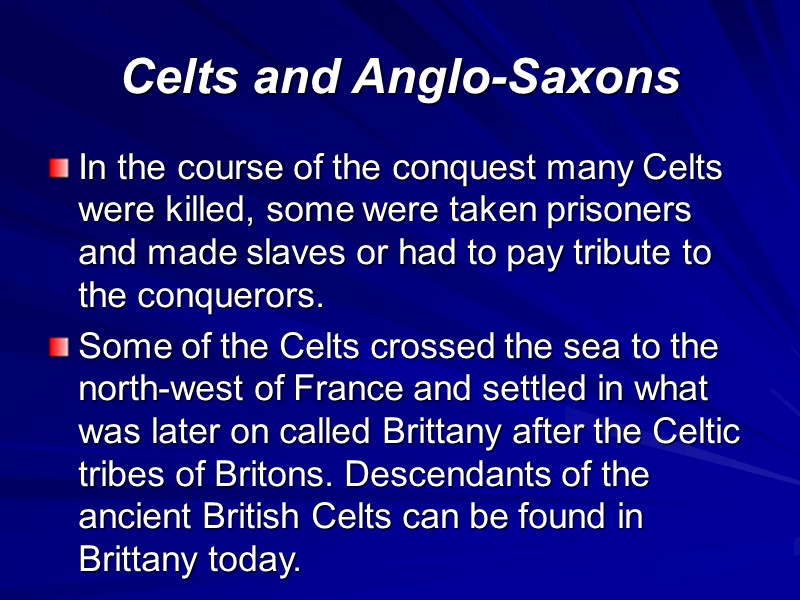
Celts and Anglo-Saxons In the course of the conquest many Celts were killed, some were taken prisoners and made slaves or had to pay tribute to the conquerors. Some of the Celts crossed the sea to the north-west of France and settled in what was later on called Brittany after the Celtic tribes of Britons. Descendants of the ancient British Celts can be found in Brittany today.
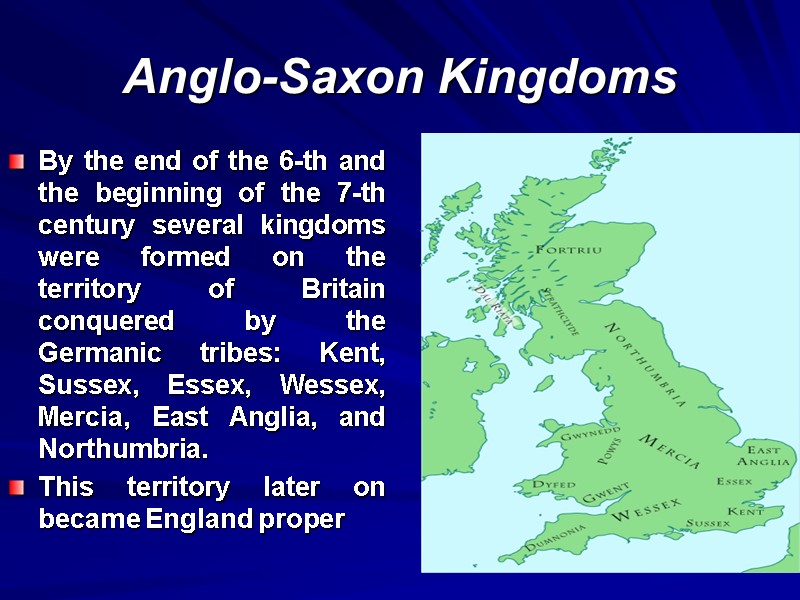
Anglo-Saxon Kingdoms By the end of the 6-th and the beginning of the 7-th century several kingdoms were formed on the territory of Britain conquered by the Germanic tribes: Kent, Sussex, Essex, Wessex, Mercia, East Anglia, and Northumbria. This territory later on became England proper
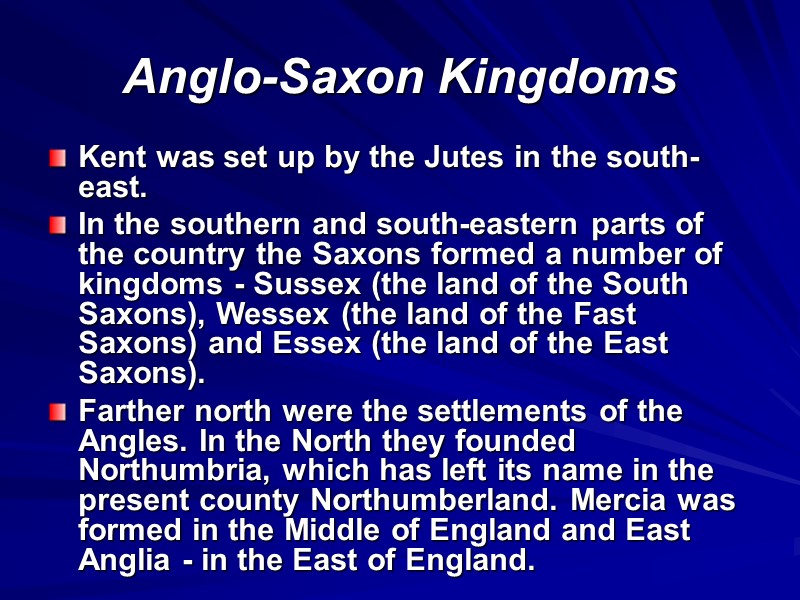
Anglo-Saxon Kingdoms Kent was set up by the Jutes in the south-east. In the southern and south-eastern parts of the country the Saxons formed a number of kingdoms - Sussex (the land of the South Saxons), Wessex (the land of the Fast Saxons) and Essex (the land of the East Saxons). Farther north were the settlements of the Angles. In the North they founded Northumbria, which has left its name in the present county Northumberland. Mercia was formed in the Middle of England and East Anglia - in the East of England.
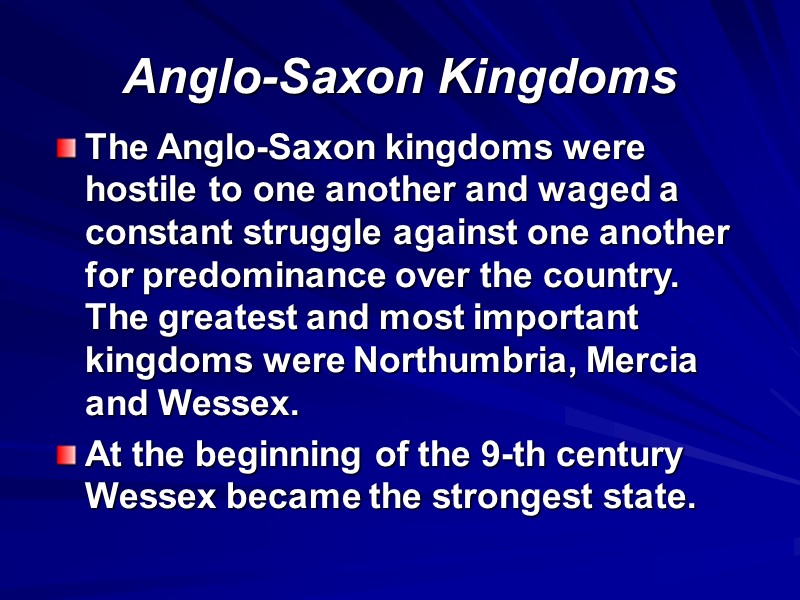
Anglo-Saxon Kingdoms The Anglo-Saxon kingdoms were hostile to one another and waged a constant struggle against one another for predominance over the country. The greatest and most important kingdoms were Northumbria, Mercia and Wessex. At the beginning of the 9-th century Wessex became the strongest state.
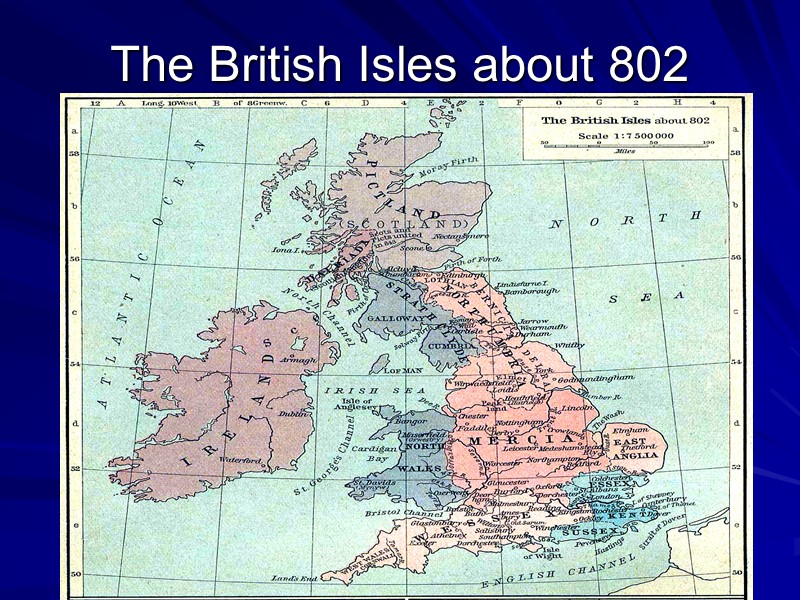
The British Isles about 802
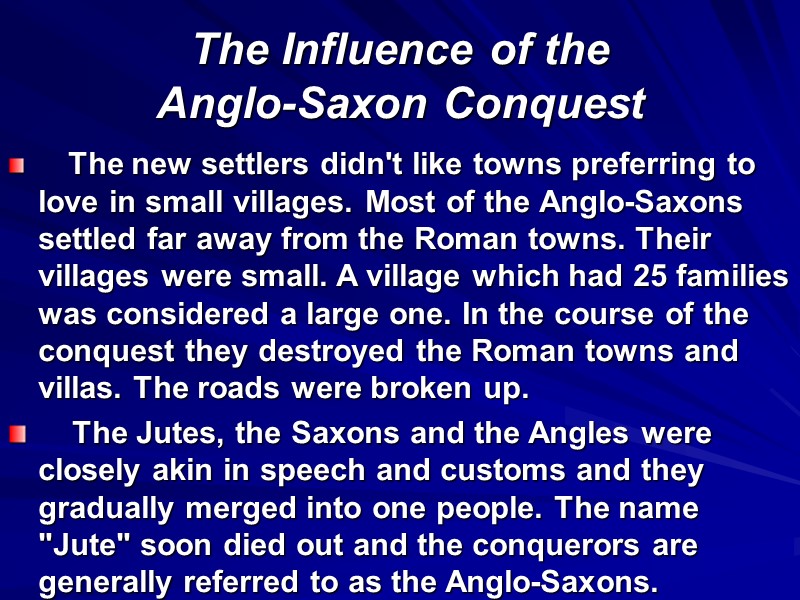
The Influence of the Anglo-Saxon Conquest The new settlers didn't like towns preferring to love in small villages. Most of the Anglo-Saxons settled far away from the Roman towns. Their villages were small. A village which had 25 families was considered a large one. In the course of the conquest they destroyed the Roman towns and villas. The roads were broken up. The Jutes, the Saxons and the Angles were closely akin in speech and customs and they gradually merged into one people. The name "Jute" soon died out and the conquerors are generally referred to as the Anglo-Saxons.
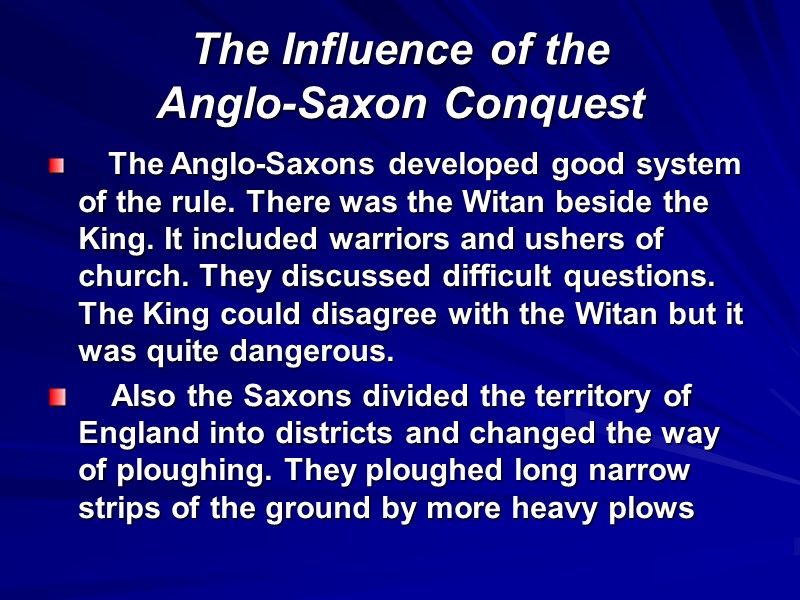
The Influence of the Anglo-Saxon Conquest The Anglo-Saxons developed good system of the rule. There was the Witan beside the King. It included warriors and ushers of church. They discussed difficult questions. The King could disagree with the Witan but it was quite dangerous. Also the Saxons divided the territory of England into districts and changed the way of ploughing. They ploughed long narrow strips of the ground by more heavy plows

The Influence of the Anglo-Saxon Conquest As a result of the conquest the Anglo-Saxons made up the majority of the population in Britain and their customs, religion and languages became, predominant. They called the Celts "Welsh" which means foreigners, as they could not understand the Celtic language, which was quite unlike their own. But gradually the Celts who were in the minority merged with the conquerors and learned their language. Only the Celts who remained independent in the West, in Scotland and Ireland spoke their native tongue.

The Linguistic Situation in Anglo-Saxon Britain At first the Anglo-Saxons spoke various dialects but the dialect of the Angles of Mercia became predominant. In the course of time all the people of Britain were referred to as the English after the Angles and the new name of England was given to the whole country. The Anglo-Saxon language, or English, has been the principle language of the country since then although it has undergone great change.
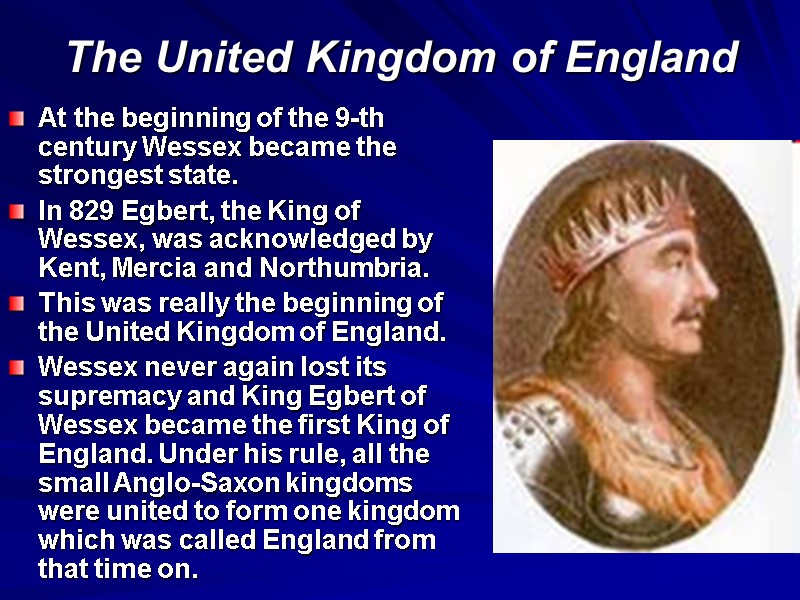
The United Kingdom of England At the beginning of the 9-th century Wessex became the strongest state. In 829 Egbert, the King of Wessex, was acknоwledged by Kent, Mercia and Northumbria. This was really the beginning of the United Kingdom of England. Wessex never again lost its supremacy and King Egbert of Wessex became the first King of England. Under his rule, all the small Anglo-Saxon kingdoms were united to form one kingdom which was called England from that time on.

Christianity The first attempts to introduce Roman Christian Religion in Anglo-Saxon Britain were made at the end of the 6th century. In 597 a group of missionaries from Rome, sent by Pope Gregory the Great, landed in Kent.

Canterbury Cathedral
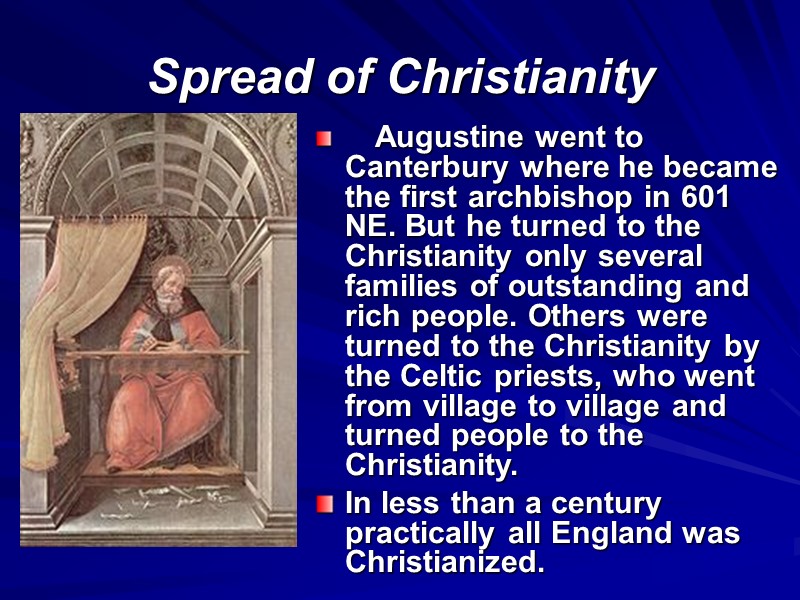
Spread of Christianity Augustine went to Canterbury where he became the first archbishop in 601 NE. But he turned to the Christianity only several families of outstanding and rich people. Others were turned to the Christianity by the Celtic priests, who went from village to village and turned people to the Christianity. In less than a century practically all England was Christianized.

The Influence of Introduction of Christianity The introduction of Christianity gave rise to the growth of culture and learning. Monasteries with monastic schools were founded throughout the country. Religious services and teaching were conducted in Latin.

Thank You Abrossimova L.S.
35998-anglo-saxon_conquest_of_britain._abrossimova.ppt
- Количество слайдов: 23

